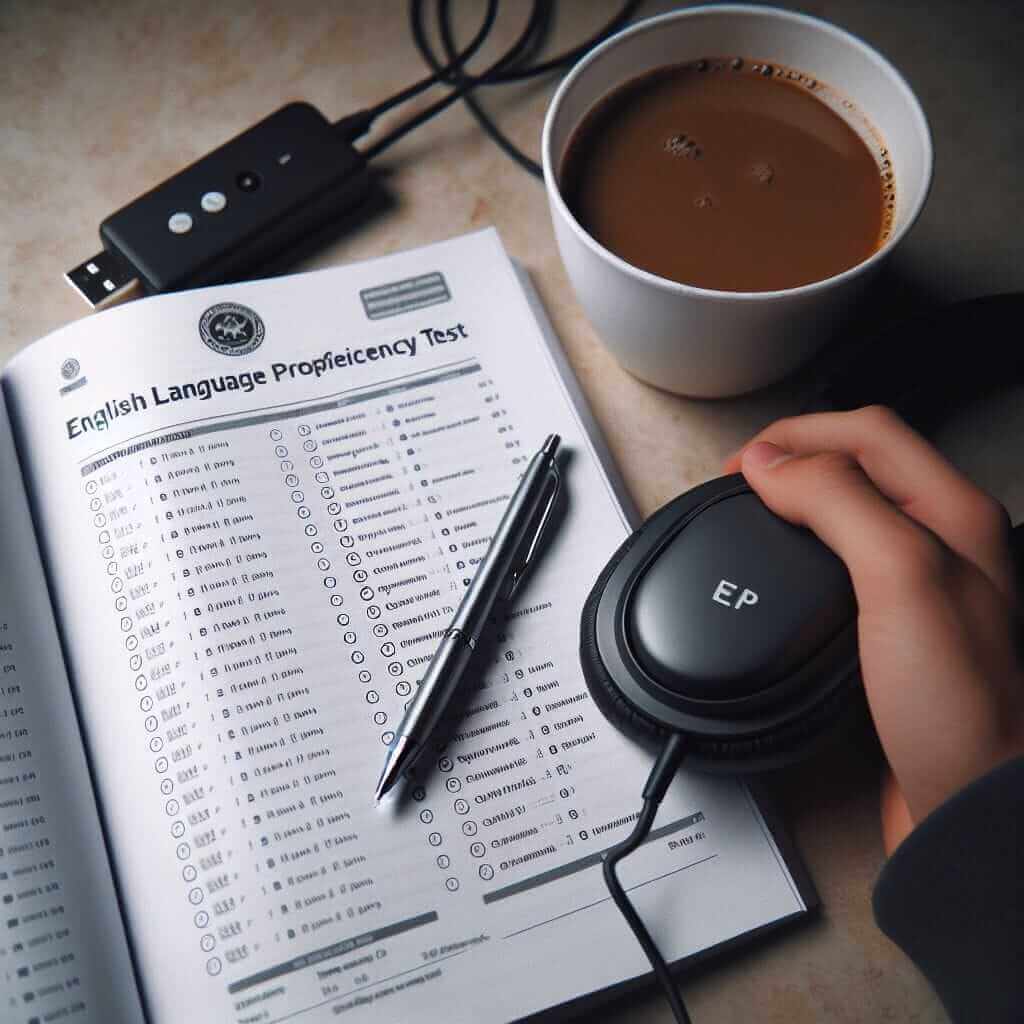The IELTS Listening test often feels like a race against time. As a seasoned IELTS instructor with over two decades of experience, I understand the challenges students face with this section. This comprehensive guide will equip you with the strategies and insights needed to boost your score and conquer the IELTS Listening test.
Understanding the IELTS Listening Test Format
Before delving into strategies, let’s familiarize ourselves with the test’s structure. The IELTS Listening test is identical for both Academic and General Training modules and comprises four sections, each with ten questions, making a total of 40 questions.
- Section 1: A conversation between two speakers in a social context.
- Section 2: A monologue or a conversation related to an everyday situation.
- Section 3: A conversation between up to four people in an educational or training setting.
- Section 4: A monologue on an academic subject.
You will have 30 minutes to answer the questions and an additional 10 minutes to transfer your answers to the answer sheet.
Key Strategies for IELTS Listening Success
Mastering the IELTS Listening test goes beyond mere comprehension; it demands focus, strategy, and efficient information processing. Let’s explore proven techniques to help you excel:
1. Develop Active Listening Skills
Active listening is crucial for success in this section. Here’s how to hone this skill:
- Focus: Pay undivided attention to the audio. Avoid distractions and concentrate on understanding the context, speaker’s tone, and key information.
- Predict: Before each section, use the given time to read the questions carefully. Try to anticipate the type of information you need to listen for.
- Keywords: Identify keywords in both the questions and answer choices. This will help you stay focused and recognize relevant information quickly.
2. Familiarize Yourself with Different Accents
The IELTS Listening test features a variety of native English accents, which can be challenging. Practice listening to different accents, such as:
- British
- American
- Australian
- Canadian
- New Zealand
Exposure to these accents will improve your comprehension and reduce anxiety during the test.
3. Practice with Authentic IELTS Materials
Use official IELTS practice tests and sample questions. This familiarizes you with the test format, question types, and the level of difficulty.
4. Pay Attention to Grammar and Spelling
Even a minor spelling mistake can cost you marks. Be attentive when transferring answers to the answer sheet and ensure grammatical accuracy in your responses.
5. Manage Your Time Effectively
Time management is crucial. Use the allocated time before each section to preview the questions and during the 10 minutes provided at the end to review your answers thoroughly.
Example from an IELTS Listening Test
Let’s look at a sample question from Section 1 of an IELTS Listening test:
You hear two people discussing a job vacancy.
Man: So, have you heard back from that job you applied for?
Woman: Yeah, I got an interview next week, but I’m not sure about the location.
Question: What is the woman unsure about?
- A. The date of the interview
- B. The location of the job
- C. The salary offered
Answer: B. The location of the job
Explanation: The woman explicitly states her uncertainty about “the location.”

Top Tips for IELTS Listening Success
Here are some additional tips from my years of experience:
- Don’t stress about understanding every single word. Focus on grasping the overall meaning and identifying keywords.
- Develop shorthand techniques for note-taking to quickly jot down important information.
- Use practice tests to identify your strengths and weaknesses. This allows you to focus your preparation effectively.
- Stay calm and composed during the test. Confidence plays a significant role in your performance.
Conclusion
Excelling in the IELTS Listening test is achievable with focused preparation and consistent practice. By implementing the strategies outlined in this guide, you’ll be well on your way to achieving your desired score. Remember, active listening, familiarity with accents, time management, and attention to detail are your allies in this section. Best of luck with your IELTS journey!